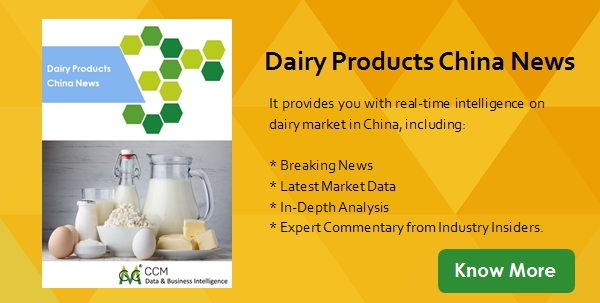Summary: In 2014-2015, some domestic
dairying enterprises have begun to resort to e-commerce platforms to launch
their low-priced infant formula. However such products have yet to practically
influence the infant formula price system.

Source: Internet
Since 2014, Chinese processors have
launched a number of low-priced infant formula on e-commerce platforms:
-
In March 2014, Feihe International Inc. (Feihe International)
launched a new infant formula with prices ranging from USD27.3/900g (RMB168) to
USD30.6/900g (RMB188)
-
In April 2014, Jiangsu Junlebao Dairy Co. Ltd. (Junlebao Dairy) put
its infant formula priced at USD21.7/900g (RMB130) on JD.COM. Later in
December, it released another infant formula on its official website, priced at
USD28.6/900g (RMB176)
-
In May this year, New Hope Dairy Holding Co., Ltd. (New Hope Dairy)
officially started to sell its infant formula priced at USD16.1/900g (RMB99) on
JD.COM
There are 2 key drivers for this trend:
Firstly, online
shopping has been taken up rapidly by Chinese consumers. According to
statistics released by iResearch, online shopping transactions in 2014 were
worth USD455.8 billion (RMB2,800 billion), up by 48.7%. This equated to 10.7%
of total retail sales to consumers
Secondly, the cost savings achieved by e-commerce are attractive to
manufacturers, especially so for new market entrants, and for those positioning
themselves in the low-end and mid-market segments of the infant formula market
The low-priced infant formulas are likely
having an influence on competitors' pricing strategies which is hard to
measure. However, they have so far had limited success in terms of sales. For
instance, Junlebao sells 2 infant formula products, both at low prices.
However, between its initial launch in April 2014 and the end of March 2015,
the company recorded sales of less than USD65.1 million (RMB400 million).
To date, the total sales of such products
are estimated at USD113.9 million (RMB700 million) at most, despite the entry
into this segment of brands such as New Hope Dairy and Feihe International.
This is minor in the context of total sales of around USD11.4 billion (RMB70
billion) in the Chinese infant formula market.
It is arguable that consumers tend to avoid
extremely high-/ low-priced infant formula and seek the middle ground. Given
the market's history, it is easy to understand why consumers may tend to avoid
very low priced lines.
The significance of e-commerce business is
here to stay and will surely grow still further. Moreover, increased internet
usage and improving back up logistics suggest that rural areas with strong
demand will create new growth points for online shopping. This will offer
opportunities to low-priced infant formula based on e-commerce platforms.
Ultimately, it seems likely that
e-commerce, supermarkets and mother & baby stores all account for a similar
channel shares. Alongside this it could well take as long as 5-6 years for
infant formula prices to stabilise.

About CCM:
CCM is the leading market intelligence
provider for China’s agriculture, chemicals, food & ingredients and life
science markets. Founded in 2001, CCM offers a range of data and content
solutions, from price and trade data to industry newsletters and customized
market research reports. Our clients include Monsanto, DuPont, Shell, Bayer,
and Syngenta. CCM is a brand of Kcomber Inc.
For more information about CCM, please
visit www.cnchemicals.com or get in
touch with us directly by emailing econtact@cnchemicals.com or calling +86-20-37616606.